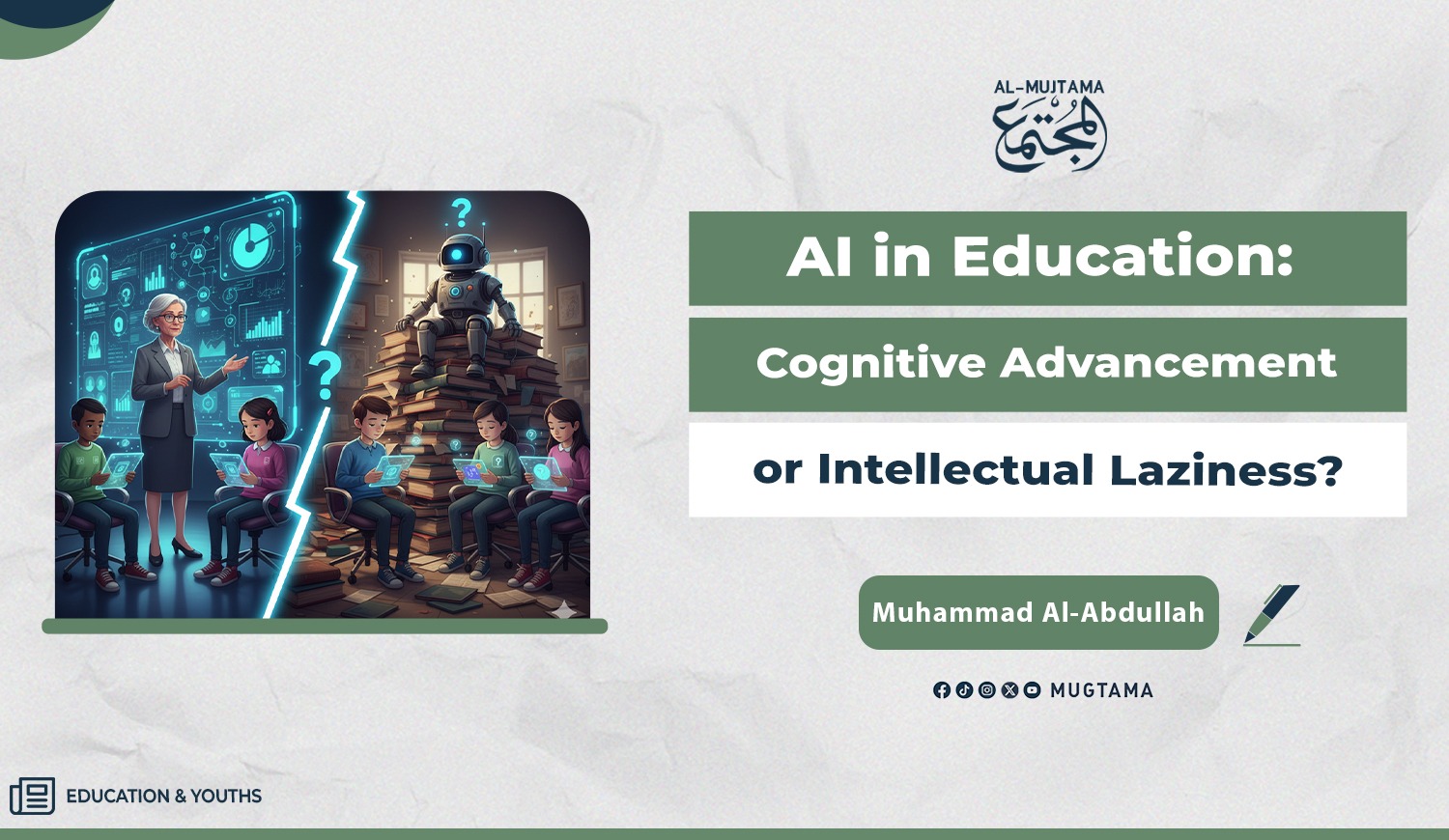AI in Education: Cognitive Advancement or Intellectual Laziness

Ministries of Education in Gulf countries
such as Saudi Arabia and the UAE are increasingly integrating artificial intelligence (AI) tools into classrooms — through smart assessment
platforms, virtual teaching assistants, and even robots that help deliver
lessons.
At the same time, specialists and educators
are warning about students’ growing dependence on tools such as ChatGPT,
QuillBot, and Khanmigo to complete assignments — and even take
home exams — with little or no personal effort.
This raises a fundamental question: Does
artificial intelligence represent a leap in the quality of education — or is it
a gateway to the collapse of self-effort and the cultivation of intellectual
laziness? Are we facing an assistive tool or a replacement for the human mind?
A Technological Leap
— Undeniably Powerful
The advancement of AI in education cannot
be denied. According to a report issued by UNESCO last March, the use of AI
applications in schools worldwide increased by 61% in just one year, with more
than $12 billion allocated to smart education projects in Gulf countries.
The UAE was among the first to incorporate
AI into its curriculum through the “School of the Future” program, where over
90% of public school students now use performance analysis and adaptive
assessment tools. The plan aims to provide personalized learning for each
student according to their level.
The Student Relies…
but Does Not Learn?
Despite these promising numbers, concerns
remain about the darker side of this boom. A report by EdTech Digest
(June 2025) indicated that 42% of high school students now rely almost entirely
on AI tools to complete assignments — without verifying the information or even
attempting to understand it.
Even more worrying, 18% of U.S. university
students admitted to using AI tools to prepare their final research papers.
Professor John Crawford from Oxford
University, a learning sciences expert, warned through Western media that “we
may be entering a stage where AI is the one learning — instead of the student.”
As for the Gulf region, no clear statistics
have yet emerged on the impact, but field experiments in schools in Riyadh and
Abu Dhabi revealed that students have become less capable of personal written
expression and more dependent on reproducing AI-generated content.
What Is Left for the
Teacher?
Amid these transformations, teachers
themselves have begun to express concern. A report by the World Teachers
Education Union (WTEU) stated that 57% of teachers in the Middle East feel
their role will diminish due to AI’s ability to explain, evaluate, and
interact.
However, others view AI as an opportunity
to reshape the teacher’s role — from a transmitter of information to a guide
for thinking.
Dr. Manal Al-Shammari, a curriculum
development expert in Kuwait, says: “The teacher will not be replaced — but
must be requalified to become a mentor. Students today don’t need someone to
tell them the information; they need someone to teach them how to deal with the
flood of information.”
Artificial
Intelligence or Human Thinking?
While technology today can offer instant
answers and interactive explanations, the greatest challenge remains: how do we
preserve the function of thinking within the student’s mind? AI cannot
sense a student’s emotions, understand their psychological state, or teach
persistence and diligence.
For this reason, the “Gulf Smart Education
Forum” held in Bahrain (July 2025) emphasized that AI tools should not be
allowed for personal writing tasks. It also called for teacher training
programs to guide students in using technology as an assistant, not a
substitute.
The forum’s recommendations also stressed
the need to establish evaluation methods that focus on comprehension and
critical thinking rather than memorization or copying.
A Tool — or a Threat?
In the end, artificial intelligence is a
valuable opportunity to modernize education — but it could also become a weapon
against education if left unchecked.
The goal of education is not simply
submitting assignments, but building minds. If we allow technology to think on
behalf of students, we will raise a generation that knows how to obtain
information — but not why they seek it in the first place.
Today, the Gulf stands before a pioneering
opportunity to build an intelligent yet humane educational model — one that
values the mind and does not worship technology.
-------------------------------------------------------------
Read Also:
-
Islamic Educational Institutions in the Age of Artificial Intelligence
Book Review: Artificial Intelligence: A Revolution in the Technologies of the Age











